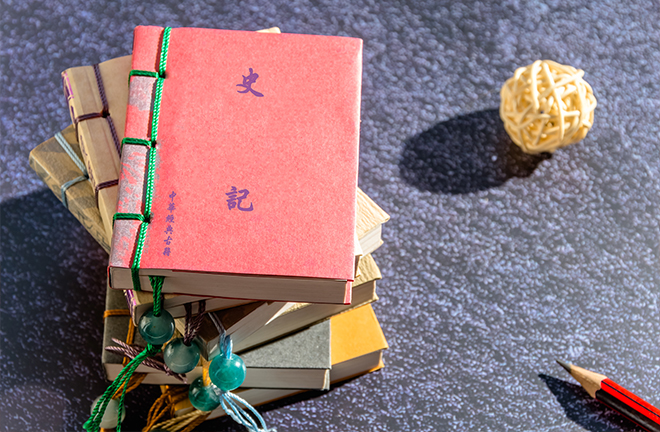Development of non-fiction literature in China

Historical and biographical literature is a form of non-fiction literature. Photo: TUCHONG
Non-fiction, as a form of writing, can be traced back to ancient times, deeply rooted in China’s rich tradition of historical and biographical literature. As a specialized discourse or genre designation, it emerged in the 20th century. It is generally believed that this concept first appeared in the context of American literature in the 1960s. Though Chinese writers and scholars promptly took notice of and studied this emerging international trend, it did not make a real impact in China then. It was during the first decade of the 21st century that non-fiction literature gained significant influence in China.
The concept of non-fiction has four basic meanings. First, it refers to a narrative method for incorporating real-world events into fictional works, as used in non-fiction novels. Second, it is a literary genre opposite to “fiction,” encompassing various forms of writing including journalism, investigative reports, biographies, non-fiction novels, and academic texts. Third, non-fiction is a writing approach where the creation of a work involves authors’ interviews, fieldwork, verification through literature review and archival research, or personal experiences, with its content closely approximating objective reality. Fourth, non-fiction refers to a realist orientation of writers. Non-fiction literature should reflect the objective truth while also exhibiting the aesthetic qualities expected of literary works.
The emergence and development of literary genres fundamentally depend on the times and social conditions. “Literature is entering an era of non-fiction” does not imply that the novel will cede its dominant position to narrative non-fiction works. Instead, it suggests a shift from the sole dominance of novels to the dual structure comprising both fiction and non-fiction. The realities of this era have greatly empowered non-fiction literature. Science and technology have advanced rapidly in modern times, leading to remarkable changes in people’s life and work. Globalization has closely connected different parts of the world, affecting not only international relations but also the lives of individuals.
In such an era, fresh and exciting information emerges in real life at every moment. Media outlets disseminate massive amounts of information in real time through various means designed to attract audiences, with the majority of it being non-fiction or “quasi”-non-fiction information. Concurrently, tremendous scientific and technological advancements have put pressure on human imagination. Progress in space exploration narrows people’s imagination of the moon, and advances in deep-sea exploration challenge our perceptions of the underwater world. These factors directly or indirectly influence human cultural creation, literary endeavors, and the shaping of aesthetic psychology.
While non-fiction literature is flourishing in China, there is much room for improvement. A systematic logical framework is absent, and despite the abundance of works, those with contemporary, historical, and humanistic value are scarce. The fundamental value of literature lies in its breadth, depth, and innovativeness when reflecting reality. While non-fiction literature directly relates to reality, meaning is not generated automatically. Excellent non-fiction works should effectively present the characteristics and spirit of the times by depicting real and unique objects.
Ideally, non-fiction literature integrates history with aesthetics. Discussions of non-fiction literature often revolve around “non-fiction” while overlooking “literature.” Non-fiction writing is not equivalent to non-fiction literature, as much of non-fiction writing is non-literary. While literariness itself is open-ended, non-fiction literature, as a form of narrative writing and an art of language, should meet basic aesthetic requirements.
In stark contrast to the thriving scene of non-fiction literary creation, theoretical criticism seriously lags behind and lacks specialized research. While many experts engage in the study of novels, poetry, drama, and prose, scholars committed to the study of non-fiction literature are few and far between. Chinese literary researchers should leverage overseas studies, inherit the esteemed tradition of Chinese non-fiction literature, and refine the rich experience gained from China’s contemporary non-fiction literary creation. By doing so, they can construct a theoretical critical discourse system for non-fiction literature with Chinese characteristics.
Ding Xiaoyuan is a professor from Changshu Institute of Technology.
Edited by WANG YOURAN
